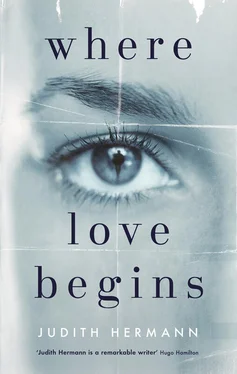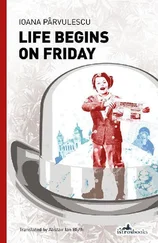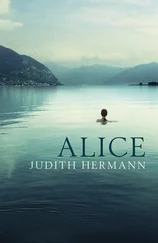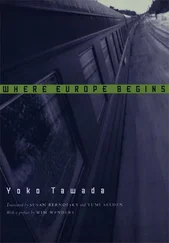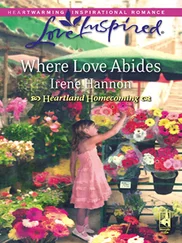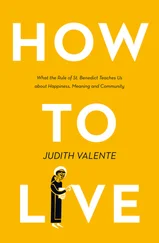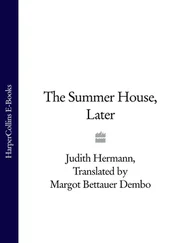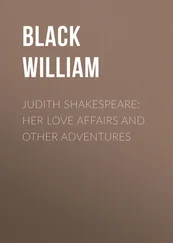Maybe Paloma wishes Stella would talk. But Stella doesn’t know what she should say. How she should explain her passivity, her waiting. What is she waiting for.
*
The tarpaulin outside the windows of Julia and Dermot’s house seem to shade it from the heat, and the atmosphere in all the rooms is diffused. Stella washes Julia, dresses her, and takes her to the kitchen. Dermot goes shopping, to the library, for a walk; Stella doesn’t know what he does when he leaves the house, when he frees himself for an hour from the togetherness with Julia. When he comes back, he has also brought strawberries. Julia is sitting on the bench in the kitchen leaning back against the wall, her head turned to one side, facing the blue light outside the window. In her lap is a silver spoon; Julia keeps putting her thumb into its bowl, feeling it. Dermot watches her. Then he says, I brought strawberries; naturally she says nothing in reply. Stella washes the strawberries; Dermot hands her a plate and then puts the plate with the strawberries on the table, in the exact centre.
Please sit down for another moment.
Stella sits down next to Julia. She wishes Dermot would ask her something, and he does, pleasantly. He clears his throat. Then he says, Did you get anywhere with your coup de foudre?
No, Stella says. She can’t help smiling, as if she were lying. No, I didn’t. We spent the weekend at the lake at Jason’s construction site. In the house he is just building.
Dermot looks at her expectantly. Stella shrugs. What is there to tell? The house is on the shore, the framing shows where the walls will be; the windows haven’t been set in yet; a house like an idea, a vision of a distant future. The opposite of Dermot and Julia’s house, as well as the opposite of Stella and Jason’s house. Views of the water, of the forest.
She says, It was the first warm weekend this year. We slept overnight in sleeping bags on the roof. Ate doughnuts, drank tea from a thermos; everything very makeshift; Ava liked it. Ava went swimming in the ice-cold lake.
Jays in the tops of the tall pines; warnings of something. Ava and Jason had vanished into the woods. Stella was sitting on an overturned paint pail in the middle of a room as large as a dance hall and thinking that she had lost one temporary arrangement after another in her life. Had thought about it with bitterness. But later Jason had laughed about it. He’d said, Changes will come again soon enough, Stella. Just wait. What is a temporary arrangement? Ava’s question, and Stella had said, Papa and I are talking about two different things. Ava’s hands, cupped together like a bowl, and in the bowl a stag beetle, iridescent and green. When they said goodbye, Stella had cried. Stella, not Ava.
She says, We had a quiet time. I felt detached. I’ll have to see.
Julia doesn’t turn to Stella. She is looking towards the window as if she were sitting in the kitchen by herself; the spoon in her lap turning like the needle on a compass. It doesn’t matter to Stella. Still, it would be a gift if Julia would say something, unexpectedly, something simple and absolutely right.
The night under the open sky was beautiful, Stella says. The night under the open sky was actually the most beautiful part.
*
In the garden that evening at home Stella gets the lawn sprinkler out of the shed for Ava and turns it on. Ava squeezes her eyes shut, trembling in expectation before the jet of water pivots and falls on her; she stands under the lawn sprinkler, arms close to her body, hands balled into fists. Stella collapses the garden umbrella, sets the table. Two plates, two glasses. Too little. Voices from the other gardens, the slamming of screen doors, the chinking of ice cubes. The telephone rings, and Ava, soaking wet, runs into the house. It’s Jason.
Is everything all right? How are you?
It’s hot, Stella says. You’re not here. We’re all right.
*
And now Mister Pfister puts something into the mailbox every day.
A letter in a red envelope, sturdy, heavy paper, like an invitation to a children’s birthday party, dropped in at three o’clock at night.
A letter in a yellow envelope with nothing on it but Stella’s name.
An awful piece of graph paper covered with tiny letters from the first to the last square, an ants’ scrawl with whorls and circles twining through them, all doodled with a ballpoint pen.
On Tuesday morning he puts a slip of paper into the mailbox with the word Wednesday on it.
He puts a Dictaphone into the mailbox. A USB flash drive. A self-burned CD in a sleeve sealed with gaffer tape. A small, transparent bag with some indefinable things inside — pips?
He puts a piece of cardboard into the mailbox; a symbol has been drawn on the piece of cardboard that perplexes Stella because it resembles the symbols somebody or other once scratched into the doorsill of Stella and Clara’s apartment in the city ten years ago; three intertwined circular arcs, the symbol for an infinite connection; what does this symbol signify for Mister Pfister?
Mister Pfister puts a roll of twine into the mailbox. A burned-down match, a cigarette lighter and a dirty lollipop on a gnawed stick.
For one entire day he puts nothing into the mailbox, a nothing full of insinuations, a pulsating caesura.
Then he puts a sheet of music paper into the mailbox with scribbles between the lines of the stave and the clef thoroughly scribbled over.
I haven’t been listening to music for a long time, Stella thinks. Anyhow, not for a long time.
She waits for mail from Clara. For Clara’s perspective on Mister Pfister’s abyss, the spiral with the botanical name, for her energetic protection. But it seems that Clara thinks Stella can take care of herself.
*
On Friday there’s a photo in the mailbox. Stella tries not to look at the photo, and fails. On her way to the shed, to the shoebox, she stops in the glaring sunshine, holding the photo in her hand, bends down to look at it, studies it, can’t help herself.
Is that Mister Pfister?
No doubt about it, it is.
Mister Pfister next to his mother or next to his grandmother, in any case Mister Pfister next to an older woman in a living room; the living room is gloomy, a couch, a low table, and a puny Christmas tree, half of its branches draped with tinsel. Mister Pfister’s facial expression is indescribable. The woman beside him sits with staring eyes and seems petrified as if she were facing a serious threat; the atmosphere of the room is totally depressing. The room isn’t a room in Mister Pfister’s house, Stella is sure of that; the window behind the couch isn’t the kind used in the housing development. Possibly it’s a window in an apartment house, maybe a window in a high-rise building. The photo is out of focus, blurry, bad. It is so bleak that it makes Stella feel sick, a sick feeling somewhere between fear and anger. What is this photo doing in her mailbox anyway and in her hand. Why should she have to concern herself with a photo like this, with a stranger’s private horror? Stella stands outside the shed with the photo; turning around, she looks across the garden out to the deserted street. Noonday. No shade, no birdsong, not a soul. She’d like to tear the photo into little scraps, but she has to show it to Jason, she has to pass it on, definitely must hand it over; she feels an intense need to wash her hands. The shed is stuffy and dark. The shoebox under the workbench has a pronounced heft.
*
That evening Stella sits by Ava’s bed until Ava falls asleep. Ava’s breaths changing from sighs, questioning sounds, into a slow rhythm that Stella listens to for a long time. Breathing as if there were nothing to fear in this world. Ava’s tight grip on Stella’s hand relaxes; then she lets go, turns onto her side and straightens her legs. Stella pushes up the window, switches on the night-light in the globe, and leaves the room on tiptoe. In the kitchen the radio is humming, the tap dripping, the remnants of their supper still on the table. For a while Stella leans against the door to the already dim living room with her arms crossed, then she goes into the kitchen, back to the living room, into the hall, and finally into Jason’s room; she sits down at Jason’s desk and turns on the computer. Sits there and watches as the screen lights up; then she enters the word stalking into the search field, one letter at a time.
Читать дальше
